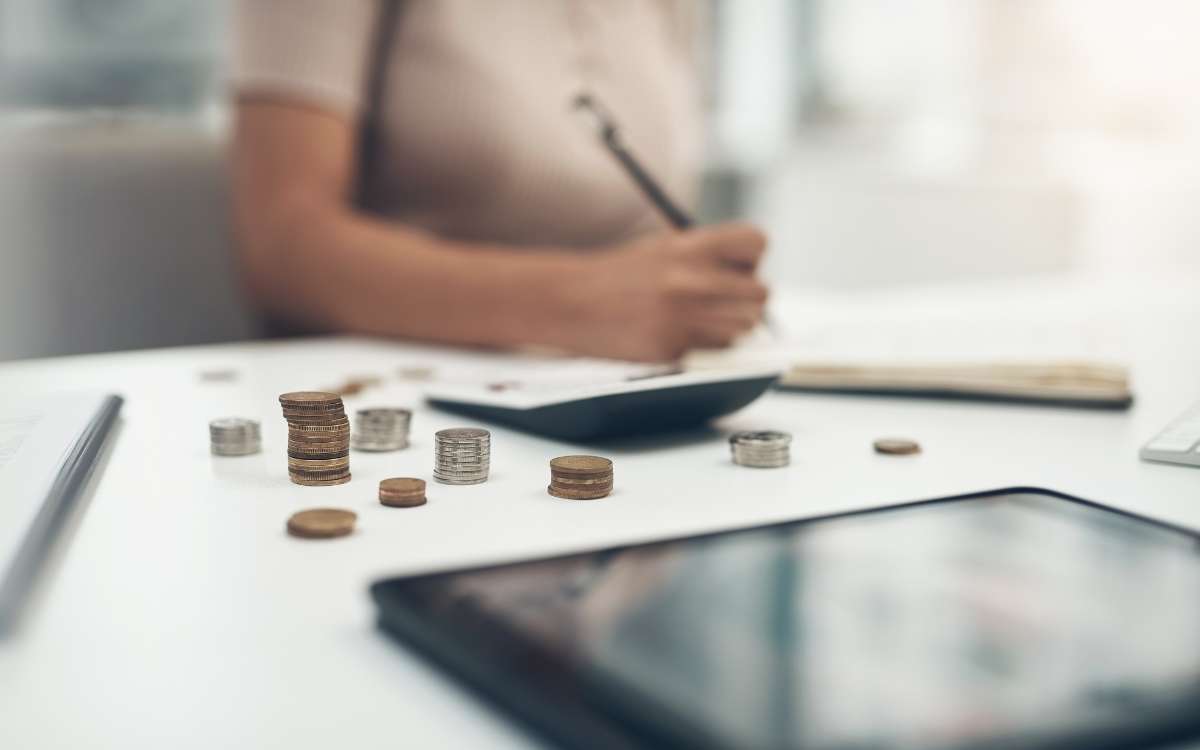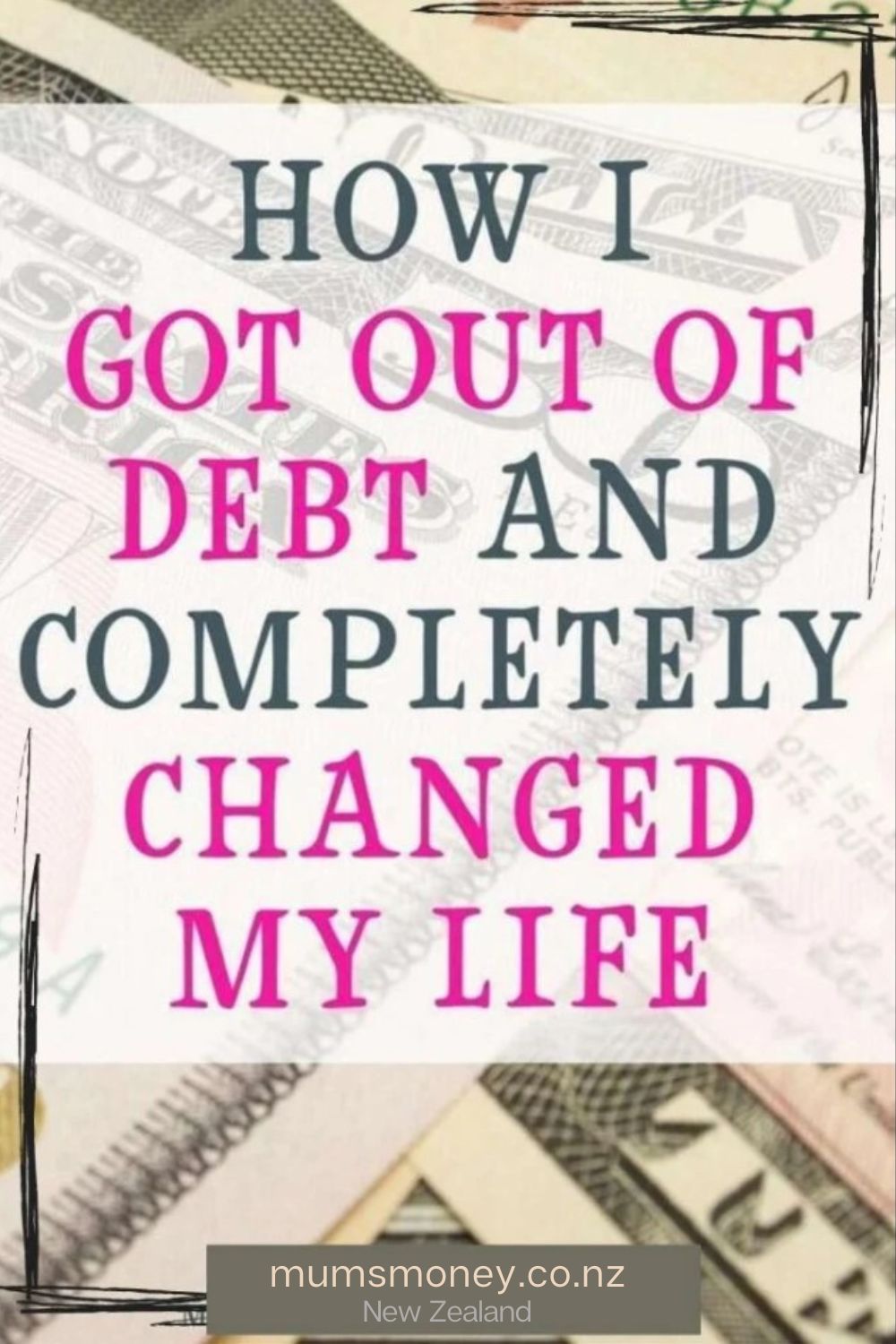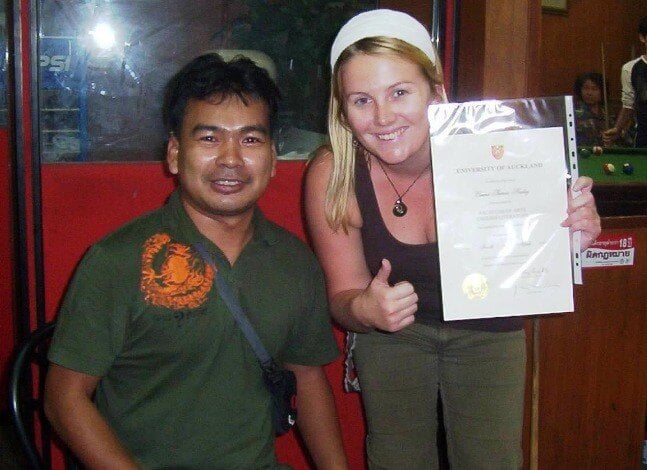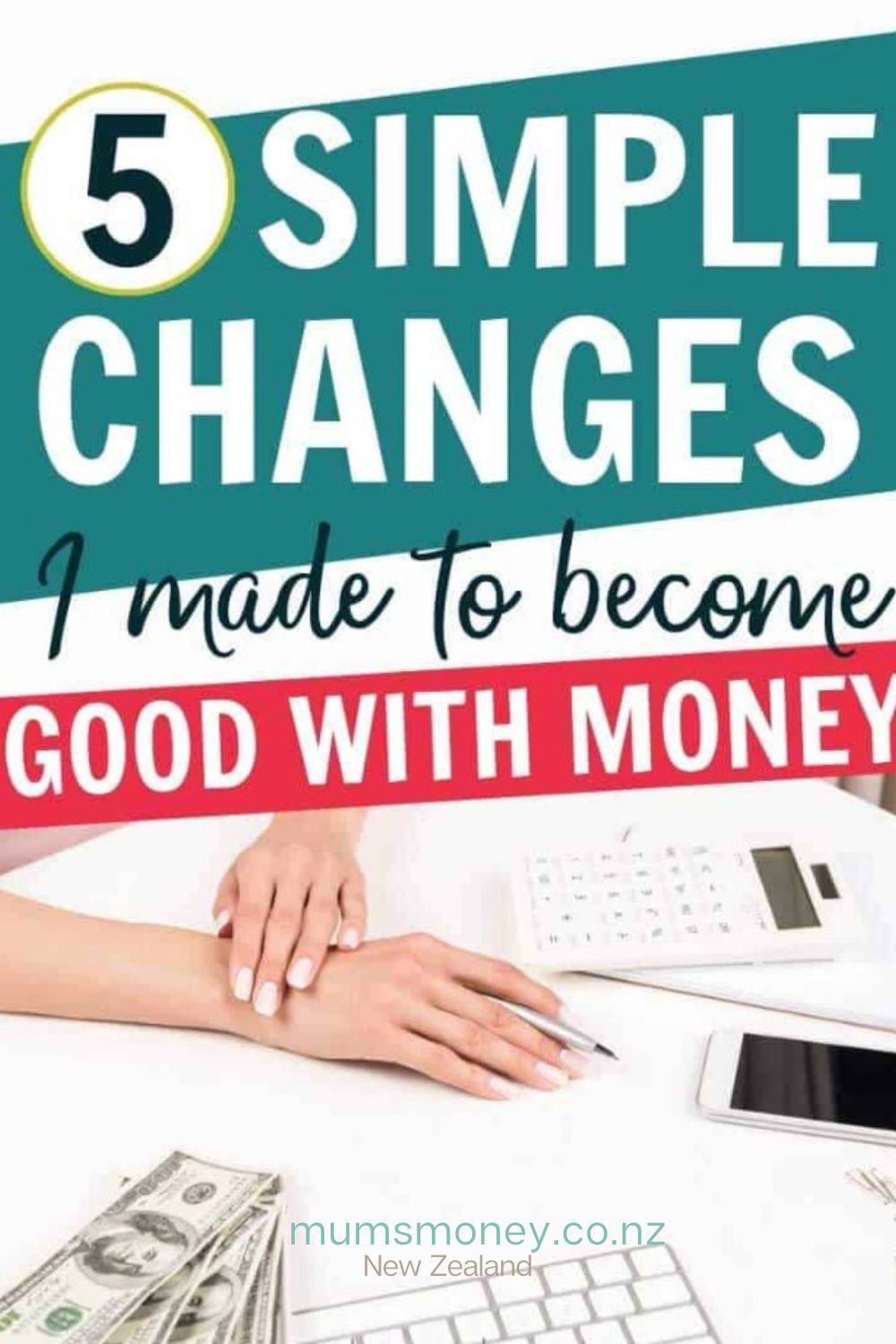Ever wondered how to be good with money?
Like someone who can pay for their groceries (or beer) in cash and not need to borrow money to take a holiday?
Yeah? Me, too.
There was a point in my life where I could not fathom how people who earned the same income (or even less than me) could live good lives without debt.
Like, how is that even possible?
Let me tell you a story.

$50,000. My magic number.
If you had told me twelve years ago that I would one day have (more than) $50,000 to my name, I would have laughed in your face before taking a deep swig of my $5 beer at the pub (where I was drinking during the day).
‘Yeah, right’!! I’d be thinking, ‘I don’t even know how I’m going to pay for my next pint’**.
I was terrible with money.
I paid for everything with credit cards or personal loans, saved nothing, and spent hundreds of dollars on my social life each weekend.
I’d come to accept that I would always live hand to mouth.
I never believed I could one day be good with money, able to save thousands of dollars to travel the world and build a rental property portfolio.
I remember saying to anyone who would listen, “I can’t save money, but I’m excellent at paying off debt“.
Which was true.
Having debt repayments to meet gave me a false sense of financial superiority,
I’d never miss a payment on my loans, so, therefore, I was good at managing my money.
Now, I look back and shake my head, but at the time, it made perfect sense.
I was finding a way to justify debt so I wouldn’t have to do the hard work of eliminating it altogether.

How I Got Out of Debt and Became a Saver
So what happened to the girl who couldn’t put aside anything on payday?
How did she get to the position where she could save thousands of dollars to travel the world?
It’s really simple – I made the decision to change.
Why?
I was working an office job, which paid OK, enough to indulge my handbag addiction and pay my bills.
I also lived in Sydney, Australia, one of the most expensive cities on earth.
All I could see in my future was an endless cycle of working to pay bills, rent and buy handbags.
I wanted to travel. But I had no savings, and travelling seemed like an unattainable dream.
I hit rock bottom (yes – bad money management is as dangerous as drugs or alcohol) when I had to take out an unsecured personal loan to pay a tax bill I had been avoiding.
I remember sitting in my accountant’s office and crying.
How on earth was I going to pay a $5,000 tax bill?
I didn’t have a cent to my name.
The answer – more debt.
Harsh realities
Filling out the income and expense details in the loan application form was the kick in the bum I needed.
That was the first time I had actually written out my entire financial position.
I had always written budgets for weekly expenses (which never included a saving component), but I had never taken it that one step further.
The reality was soul-destroying.
I was 23 and in debt up to my eyeballs.
It was hardly the bright future I had planned when I emigrated to Australia two years prior.
The income side of the equation looked OK, but I was spending hard!
I had paid for a three-month backpacking trip around Southeast Asia with my credit card, withdrawing cash from ATMs in Thailand and accruing massive interest bills.

I even bought a fake university degree in Bangkok, just for the laugh.
Yep, I’d spend $72 for a laugh.
Back in Sydney, I’d spend at least $200 each weekend (sometimes more like $350) on alcohol, cigarettes, entry to clubs and powder that went up my nose.
I wanted to travel without debt this time.
Things had to change.
5 Changes I Made to Become Good With Money
1. Budget
To make the new loan repayments, I had to write a proper budget with categories for debt repayment.
I also wanted to have a little in savings, just in case.
Paying a $3000 credit card debt was my primary focus, so I used the debt snowball method.
2. Cut Expenses and Increase Income
Living in a shared house meant rent was cheap.
I also started to meal plan and stopped eating out every night.
I signed up for casual work, pulling pints (which made a nice change from drinking them) at events and concerts and babysat for parents from my office.
When the holiday season came around, I applied for a casual retail job, working weekends and late nights.
I worked seven days a week to get out of debt.
(Pro-tip: The Christmas/summer season is the best time of year to boost your income – here are some of the best ways).
Weekday evenings were reserved for focus groups and mystery shopping, plus I took paid surveys whenever they came my way.
Everything I received from my extra jobs went toward my credit card debt.
3. Start saving
I was also paying myself $10 per week.
That money went directly into a savings account.
I needed to have that little something there just to feel like I was advancing my financial future; debt repayment alone wasn’t enough motivation.
4. Come to terms with my debt
To physically atone for my debt, I would pay the extra credit card repayments in cash at the branch.
Sometimes, I would stand in line for 25 minutes holding hundreds of dollars, dreading being called to the teller to hand it over.
It felt like I was giving the bank money for nothing.
I knew I’d spent it, but it didn’t feel like I’d spent this much.
The irony was not lost on me – had I used cash for purchases, I wouldn’t be wasting half of my lunch break in a queue lamenting my wasteful ways.
5. Learn about money management
After a year, I paid off the credit card.
I also had over $500 in a savings account. It wasn’t much, but it was all mine.
That was the turning point for me; I knew I was capable of doing anything I put my mind to.
I began to get educated in money management from library books and websites.
I had a new money mindset and now understood that money was a tool I could use to improve my life.
For the first time in ages, the future looked exactly like I’d pictured.
** In case you’re wondering how I paid for that next pint of beer, I went to the bank nearby the pub and withdrew cash from my credit card, accruing huge interest bills and cash advance fees. Tut tut.
Related guides:
- Financial Freedom With A Family: Our Plan to FI/RE (kind of) with Kids!
- Frugal Living in New Zealand
- How I’m Creating a Life I Don’t Need to Retire From
